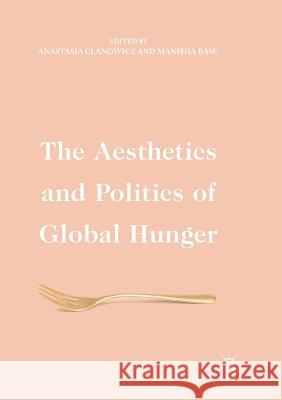The Aesthetics and Politics of Global Hunger » książka
topmenu
The Aesthetics and Politics of Global Hunger
ISBN-13: 9783319837482 / Angielski / Miękka / 2019 / 291 str.
Kategorie:
Kategorie BISAC:
Wydawca:
Palgrave MacMillan
Język:
Angielski
ISBN-13:
9783319837482
Rok wydania:
2019
Wydanie:
Softcover Repri
Ilość stron:
291
Waga:
0.36 kg
Wymiary:
21.01 x 14.81 x 1.63
Oprawa:
Miękka
Wolumenów:
01
Dodatkowe informacje:
Wydanie ilustrowane











